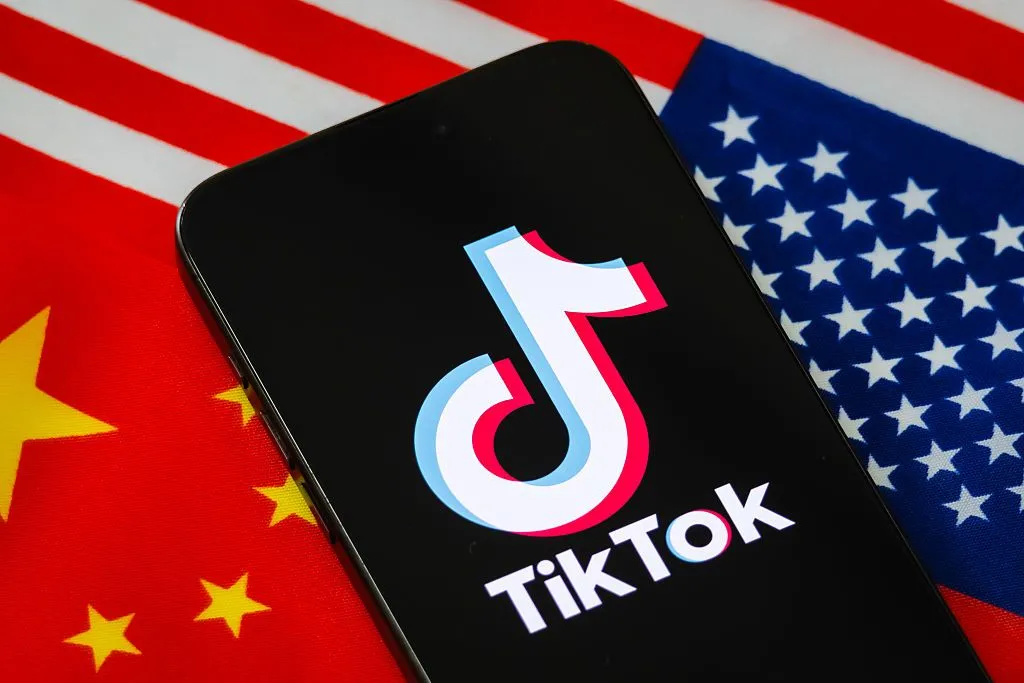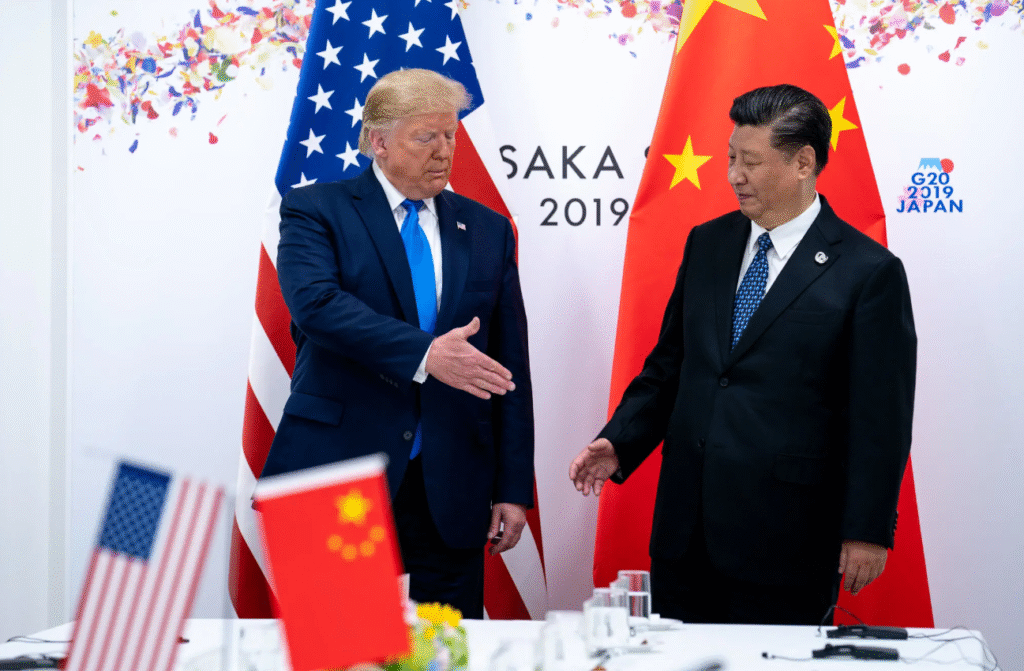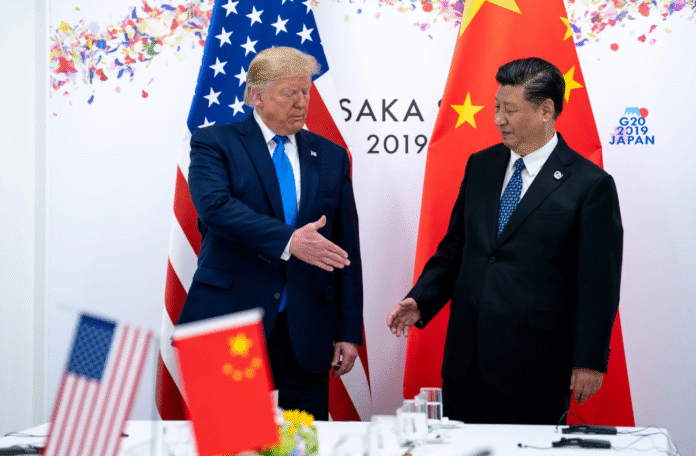TikTok Algorithm Deal: White House Outlines Major Agreement With US Firms
The TikTok algorithm deal unveiled by the White House marks a significant turning point in the battle over the popular video-sharing app’s future in the United States. Under the plan, American companies will gain control of TikTok’s powerful algorithm, while six out of seven seats on the app’s U.S. operations board will be held by Americans.
This long-anticipated deal, which could be signed in the coming days, is being presented as a safeguard for national security. However, it also raises new questions about U.S.-China relations, the future of data privacy, and whether the agreement truly resolves the concerns surrounding TikTok.

TikTok Algorithm Deal Gives Control to U.S. Companies
Press secretary Karoline Leavitt confirmed that the TikTok algorithm deal will hand control of data and privacy management to Oracle, one of America’s most powerful tech giants. Oracle, chaired by billionaire Larry Ellison, is set to oversee TikTok’s U.S. operations, ensuring that sensitive user information remains within American jurisdiction.
She emphasized that both the algorithm and data privacy will “be controlled by America,” reducing fears that Chinese parent company ByteDance could access the data of TikTok’s 170 million U.S. users.
Why the TikTok Algorithm Deal Matters
The heart of the issue has always been TikTok’s algorithm, the recommendation engine that decides what content appears on users’ feeds. Critics argue that the algorithm could be manipulated to spread propaganda or harvest data.
By making the algorithm subject to American oversight, the TikTok algorithm deal aims to neutralize these concerns. But skeptics say the move could also give U.S. companies unprecedented influence over digital culture and youth engagement.
Trump’s Role in Shaping the TikTok Algorithm Deal
Former President Donald Trump has played a key role in the evolution of the TikTok algorithm deal. During his first term, Trump called for TikTok to be banned outright unless ByteDance divested its U.S. operations.
Although his administration delayed implementing the ban multiple times, Trump revisited the issue during his 2024 presidential campaign. Ironically, while once threatening to shut down the platform, Trump also embraced TikTok as a campaign tool to connect with young voters, showing how deeply entrenched the app has become in American culture.
Beijing’s Mixed Response to the TikTok Algorithm Deal
While Trump claimed he secured approval for the TikTok algorithm deal in a phone call with Chinese President Xi Jinping, Beijing’s official statements have been more cautious.
China’s Commerce Ministry emphasized that negotiations must respect “market rules” and align with the country’s laws. Meanwhile, state media described the talks as ongoing, leaving the final outcome uncertain.
This highlights a major sticking point: whether ByteDance can legally transfer its prized algorithm to American control without violating Chinese tech export restrictions.
Oracle’s Role in the TikTok Algorithm Deal
Oracle’s involvement is central to the TikTok algorithm deal. Not only will it manage TikTok’s data storage and privacy in the U.S., but it will also act as a gatekeeper for the algorithm’s usage.
Larry Ellison’s influence in technology and politics cannot be ignored. His company already plays a key role in U.S. cloud services, and his family recently expanded into media with David Ellison’s acquisition of Paramount, which owns CBS News.
This deep entanglement of tech, media, and politics is raising concerns about whether Oracle’s control could tilt the balance of digital power in America.
Legal and Security Background of the TikTok Algorithm Deal
The urgency behind the TikTok algorithm deal stems from longstanding national security concerns. In January 2024, the U.S. Supreme Court upheld a law that banned TikTok unless ByteDance separated from its U.S. arm.
The Justice Department had warned that the app posed “immense” risks to American security, arguing that TikTok could expose sensitive user data to foreign powers. The new deal is designed to prevent such risks by cutting direct ties between ByteDance and TikTok’s American operations.
Public and Political Reactions
Reactions to the TikTok algorithm deal have been mixed. Supporters say it protects American users and reduces the possibility of foreign manipulation. Critics, however, view it as a half-measure, questioning whether Beijing will still retain indirect influence through ByteDance.
Civil liberties groups have also voiced concerns that government involvement in app governance could set a dangerous precedent for online freedoms.

What’s Next for TikTok Users?
For TikTok’s 170 million American users, the TikTok algorithm deal is unlikely to bring immediate changes to the app’s look and feel. However, behind the scenes, the transition could reshape how content is moderated, how data is stored, and how the algorithm prioritizes posts.
If the deal is signed and approved, TikTok may remain accessible in the U.S., avoiding the shutdowns and uncertainties that loomed earlier this year. But if negotiations falter, the possibility of renewed bans or restrictions could resurface.
Conclusion: The Bigger Picture
The TikTok algorithm deal is more than a business agreement, it’s a reflection of the growing digital rivalry between the United States and China. Control over algorithms, data, and online influence is now as significant as control over trade and military power.
As the deal moves toward finalization, one thing is certain: the future of TikTok will have a lasting impact on global tech policy, U.S.-China relations, and the everyday lives of millions of American users.

